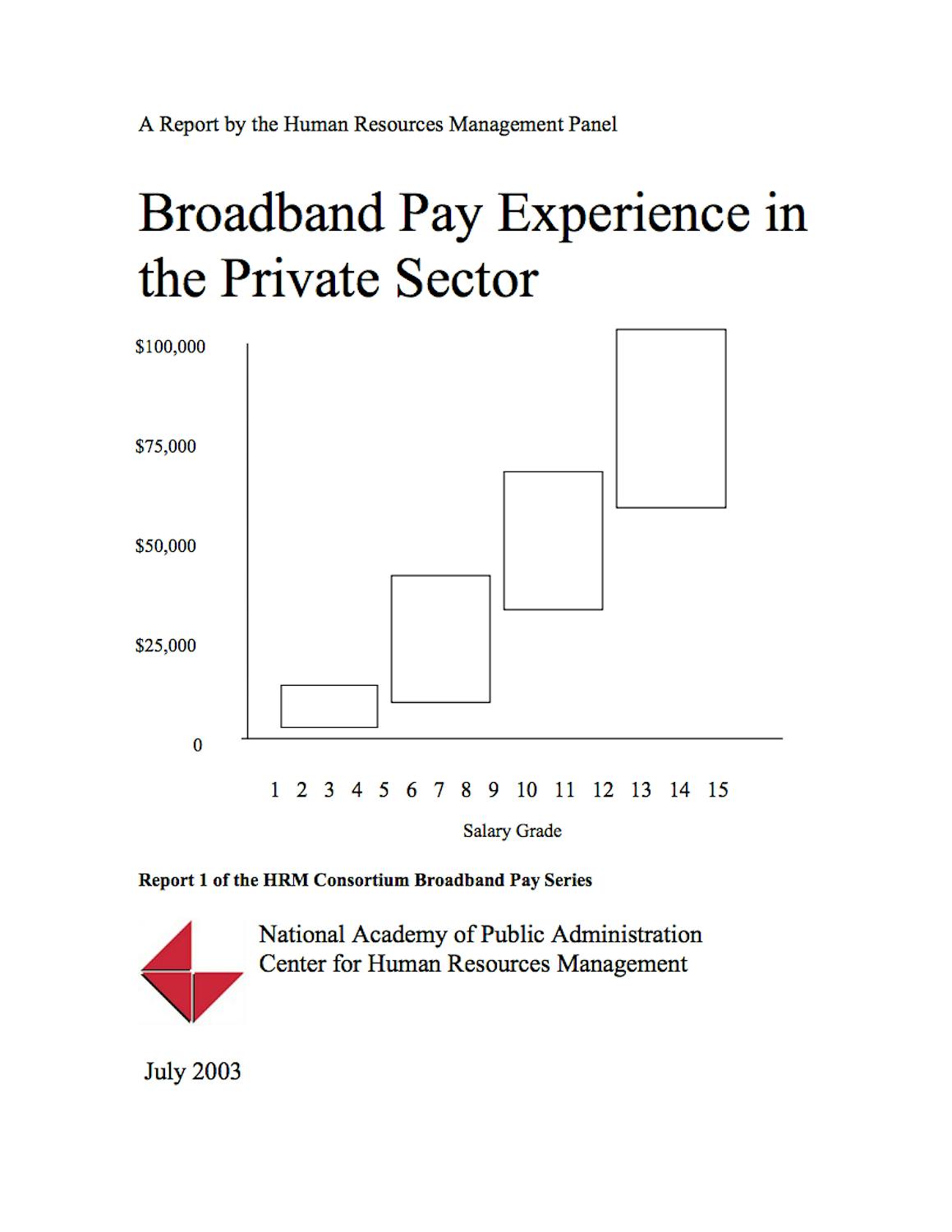
Broadband Pay Experience in the Private Sector
The Human Resources Management Consortium asked the Academy’s Human Resources Management Panel (Panel) and the Center for Human Resources Management to: catalogue the private and public experience with broadband systems in order to identify which aspects were effective; highlight other lessons learned from system users; identify other compensation systems that the private or public sectors employ, which might be appropriate for broader use in the federal sector; and recommend an approach for the use of broadbanding and/or other alternative systems as a replacement for the GS system, or for broader use by federal agencies.
This report on private sector broadbanding experiences was the first in a series of three reports designed to achieve the objectives listed above. It was followed by a report on broadbanding experiences in the public sector, primarily federal agencies. A third report provided analysis of the first two reports and made recommendations on how broadbanding systems could be used effectively by the federal government.
Click the button below to view the View Study Report.
View ReportKey Findings
The Panel found that the shift among businesses to adopt broadband pay systems was motivated by the belief among managers that they led to improved company and employee performance. Broadbanding systems changed the way managers and employees think about their jobs and salary management, and help make decision-making less bureaucratic.
Despite early concerns that they would inflate payroll costs, broadband systems have been found to be cost neutral when managed effectively. Broadbanding has changed the culture and the roles of managers in salary management. Companies increasingly delegate this responsibility to managers and provide them with the tools to make decisions. At the time of the study, companies were in the process of fine-tuning their systems (e.g., reducing the width of bands), but were not reverting to the traditional program model.
Recommendations
The Panel determined that any issues identified with the system could normally be resolved with more training, better communications, and enhanced support systems for managers.
